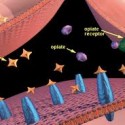Signs Your Loved One May Need Alcohol Addiction Treatment
Alcohol is the most abused drug in the world, and is the third leading cause of death in America. Alcohol addiction is a disease that plagues millions of Americans, but it is curable through alcohol addiction treatment and through the right therapeutic techniques.
Signs your Loved one is Addicted to Alcohol
There are different types of alcoholics and it is possible for someone you love to be addicted to alcohol and still maintain a normal life style; people who consume alcohol but still can perform all of their daily duties are known as functional alcoholics.
Even if you are living with or are involved with a person who is a functional alcoholic, their alcohol addiction will inevitably affect them and you whether it is through the person’s health or through them having behavioral changes.

It can be hard to tell someone they need help, but ultimately it can make their life happier and healthier.
Alcohol is a depressant and a substance that will affect your loved one’s judgment. Alcohol is also a mood enhancer and can cause people to become violent.
Signs that your loved one is addicted to alcohol and needs help from an alcohol addiction treatment program can include any of the following:
- The need for alcohol: If your loved one has to drink every day or they will become agitated, or if they cannot just have one or two drinks without drinking more, then they may be suffering from an alcohol addiction
- Mood swings: If your loved one has rapid changes in mood, especially when they are not drinking or do not have access to a drink, then they may be addicted to alcohol
- Poor hygiene: Many alcoholics do not care about keeping themselves clean or care about looking nice
- Absence from activities: If your loved one begins to stop doing activities that they enjoy or stops going to work, most of the time to stay home and drink, then they may have an alcohol problem
- Relationship problems: A loved one addicted to alcohol may begin to become argumentative, a bad listener, or even violent to their loved ones due to the effects of alcohol
- Defensive: If you loved one becomes extremely defensive every time you bring up alcohol to them then they may have formed an addiction to the substance
Alcohol addiction treatment is effective and there are many treatment options available to people who need help conquering their addictions. According to www.drugfree.org, drug use is on the rise in this country and 23.5 million Americans are addicted to alcohol and drugs. That is approximately one in every 10 Americans over the age of 12, which is roughly equal to the entire population of Texas. But only 11 percent of those with an addiction receive treatment.
If your loved one is suffering from an alcohol addiction you should talk to them about receiving alcohol addiction treatment. There are inpatient and outpatient programs available for people who suffer from alcohol addiction and there are also free programs such as Alcohol Anonymous groups that help people conquer their alcohol addictions.
